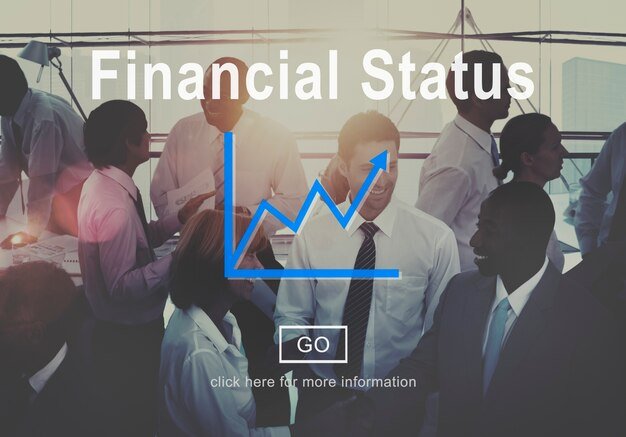When it comes to purchasing software, hardware, or digital services, you often encounter two distinct versions: business editions and consumer editions. Both are designed to cater to different types of users, each with unique needs, priorities, and expectations. Understanding the differences between business editions vs. and consumer editions is crucial when deciding which option best suits your individual or company requirements. In this article, we’ll explore what distinguishes these two editions, their respective features, and how to choose the right one for your needs.
What Are Business Editions?
Business editions are products designed specifically for professional use, targeting companies, organizations, and enterprises. They come equipped with advanced features that support business operations, enhance productivity, and facilitate large-scale management. Business editions tailor their solutions to meet the needs of professionals who require reliable, secure, and high-performance tools for tasks like data management, communication, collaboration, and security.
Common Characteristics of Business Editions
- Advanced Features: Business editions typically include a broader range of features than consumer editions. These may include collaboration tools, advanced security measures, data encryption, remote management capabilities, and support for larger user bases. For instance, Microsoft Office 365 Business includes additional tools like Microsoft Teams, SharePoint, and OneDrive for Business, which help teams collaborate and manage documents in a professional setting.
- Licensing and Scalability: Business editions often offer flexible licensing options that cater to different sizes of companies, from small startups to large enterprises. They provide volume licensing or subscription-based pricing models that allow organizations to scale their usage as their business grows. These editions also commonly include multiple-user support and networked deployments for easier management in corporate environments.
- Enhanced Security: Security is a top priority for businesses, so business editions typically include robust security features, such as multi-factor authentication, data encryption, secure access controls, and compliance with industry regulations. These features protect sensitive business data, safeguard intellectual property, and prevent cyber threats.
- Priority Customer Support: Business editions usually come with priority customer support, including dedicated support lines, on-site technical assistance, and faster response times. This level of support is critical for companies that rely on their software or hardware for daily operations and cannot afford prolonged downtime.
- Administrative Control: Business editions provide administrators with greater control over software and hardware. IT teams can manage features like centralized management, user access control, data sharing settings, and software updates from a single administrative interface, ensuring consistency and security across the organization.
Examples of Business Editions
- Microsoft Office 365 Business: Offers tools like Exchange, OneDrive for Business, SharePoint, and Microsoft Teams for collaborative work, data storage, and secure communication.
- Windows 11 Pro: Includes features like BitLocker encryption, Remote Desktop, and Group Policy management, which are essential for business environments.
- Adobe Creative Cloud for Teams: Provides collaborative tools, cloud storage, and enhanced support tailored for creative professionals working in a business setting.
What Are Consumer Editions?
Products designed for individual or personal use are called consumer editions. They focus on simplicity, ease of use, and features that cater to everyday tasks such as entertainment, casual communication, and basic productivity. Consumer editions are typically priced lower than business editions and offer fewer features with a simplified interface, making them more accessible to non-technical users.
Common Characteristics of Consumer Editions
- User-Friendly Interface: Consumer editions prioritize ease of use, offering intuitive interfaces that do not require technical knowledge to operate. The designers created them with the average user in mind, providing straightforward access to essential features for tasks like word processing, email, media consumption, and casual gaming.
- Basic Features: Unlike business editions, consumer editions usually offer a basic set of features that meet the general needs of individual users. For example, Microsoft Office Home & Student includes Word, Excel, and PowerPoint but lacks business-focused tools like Microsoft Teams or Outlook with Exchange support.
- Licensing and Pricing: Consumer editions typically come with single-user licenses and are often purchased outright rather than through subscription models. This makes them a more affordable option for individuals who do not need the extensive capabilities provided by business editions.
- Standard Security: While consumer editions do include security features like antivirus and basic encryption, they do not offer the advanced security controls and compliance measures found in business editions. TThese products target personal use, where the risk and scale of data breaches are generally lower.
- Basic Support: Customer support for consumer editions is usually limited to standard online help resources, community forums, and email support. While adequate for most individual users, it lacks the priority support and dedicated technical assistance provided to business customers.
Examples of Consumer Editions
- Microsoft Office Home & Student: Includes basic versions of Word, Excel, and PowerPoint for personal productivity tasks.
- Windows 11 Home: Designed for home users with features geared toward entertainment, gaming, and basic computing tasks, without the advanced management and security features of the Pro version.
- Adobe Creative Cloud Individual: Offers creative tools for personal use, with limited collaboration features compared to the business-focused Adobe Creative Cloud for Teams.
Business Editions vs. Consumer Editions: Key Differences
| Feature | Business Editions | Consumer Editions |
| Features | Advanced tools for collaboration, security, data management | Basic features for personal use |
| Licensing | Volume licensing, subscription models | Single-user licenses, one-time purchase |
| Security | Enhanced security with encryption, compliance | Standard security features |
| Customer Support | Priority support, dedicated technical assistance | Basic online support |
| Administrative Control | Centralized management, user controls | Minimal control, designed for single users |
How to Choose Between Business and Consumer Editions
Deciding between business and consumer editions depends on your specific needs and use cases:
- For Individual or Home Use: If you need software for personal tasks such as writing documents, managing finances, casual browsing, or photo editing, a consumer edition is sufficient. It provides all the basic features you need at an affordable price without the complexity of business-focused tools.
- For Business or Professional Use: If you run a business or manage a team, a business edition is the way to go. It offers enhanced security, collaboration tools, centralized management, and priority support, which are essential for maintaining productivity, protecting sensitive data, and managing a growing team.
- Consider Future Growth: Even if you’re a small business now, consider future growth. Investing in a business edition from the start can provide the scalability and flexibility needed as your business expands, avoiding the need to switch products later.
- Evaluate Your Budget: While business editions are generally more expensive, they offer more features and services that justify the cost. On the other hand, consumer editions are more budget-friendly but come with limitations. Weigh the features you need against your budget to make an informed decision.
Conclusion
Understanding the differences between business editions and consumer editions is crucial when selecting software, hardware, or digital services. Business editions offer advanced features, security, administrative control, and scalable licensing options, tailored specifically for professional environments. In contrast, consumer editions focus on simplicity, essential features, and affordability for individual users.
Choosing the right edition depends on your specific needs, whether you are an individual looking for basic functionality or a business requiring robust tools and support. By evaluating your requirements, budget, and future growth plans, you can select the edition that best aligns with your goals and ensures you get the most out of your investment.











